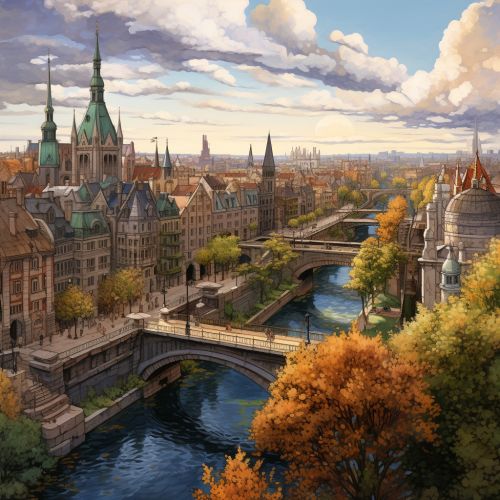Petrograd
History
Petrograd, known today as St. Petersburg, has a rich and complex history that dates back to the early 18th century. The city was founded by Peter the Great in 1703, as part of his efforts to modernize Russia and establish a new capital that would reflect his vision of a more European Russia. The city was originally named Saint Petersburg, but was renamed Petrograd in 1914, at the start of World War I, to remove any German connotations.


In the early years of its existence, Petrograd was a symbol of Russia's desire to open up to the West. Peter the Great invited architects, engineers, and other professionals from across Europe to help design and build the city. The result was a city that combined Russian and European architectural styles in a unique way, creating a distinct identity that set it apart from other Russian cities.
The city's name was changed to Petrograd in 1914, in response to anti-German sentiment during World War I. The name Petrograd, meaning "Peter's City", was seen as more patriotic and less foreign. During this period, the city was the capital of the Russian Empire and was a major political, economic, and cultural center.
Revolution and Soviet Era
Petrograd played a central role in the Russian Revolution of 1917, which led to the overthrow of the Russian monarchy and the establishment of a communist government. The city was the site of major protests and uprisings, and was where the Bolsheviks, led by Vladimir Lenin, seized power.
In the years following the revolution, Petrograd went through a period of turmoil and change. The city's status as the capital was transferred to Moscow in 1918, and it was renamed Leningrad in 1924, following Lenin's death. Despite these changes, the city remained a major cultural and industrial center during the Soviet era.
Post-Soviet Era
With the collapse of the Soviet Union in 1991, the city underwent yet another name change, reverting back to its original name of Saint Petersburg. However, the history and legacy of the Petrograd period continue to be felt in the city's architecture, culture, and identity.
Today, Petrograd is remembered as a city of great historical significance, not just for Russia, but for the world. It was a city that was at the forefront of Russia's engagement with the West, and was a major center of revolutionary activity. The city's unique blend of Russian and European influences, its role in the Russian Revolution, and its status as a major cultural and industrial center during the Soviet era, all contribute to its rich and complex history.
